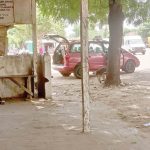Nigerians have expressed doubts over the safety of Compressed Natural Gas (CNG)-powered vehicles following the recent decision by the Malaysian government to phase out the use of natural gas for vehicles by July 2025.
The Malaysian Transport Minister, Anthony Loke, had said the 2025 ban was to prioritise the safety of road users and the public, according to Malaysia Reserve.
“These NGV tanks have a safe usage lifespan of approximately 15 years, and if they are not replaced, they become unsafe to use and may fail at any time,”
Citing Malaysia’s decision to phase out CNG vehicles, many Nigerians yesterday expressed fears of the safety.
- How Lakurawa members are terrorising us – Sokoto residents
- I’m being pushed to betray Kwankwaso, says Kano gov
#Oserume1 while commenting on X handle said “If CNG was a good idea, Tinubu would have converted his official luxury Cadillac Escalade from petrol to CNG!”
Ini Ekott, tweeting on X.com as #iniekott, “Meanwhile, Nigerian rulers are putting CNG forward as a safe alternative to petrol. Note the clear-headed and tangible provisions made by the Malaysian government to help citizens with the transition.”
Osasu Obayiuwana on his X handle (@osasuo) posted “While @NigeriaGov is encouraging the use of CNG cars in #Nigeria, #Malaysia will stop the use of CNG cars from May 2025, due to safety concerns. Let this sink in, for those selling this dubious option to #Nigerians.”
Meanwhile, the Special Adviser to President Bola Tinubu on Information and Strategy, Bayo Onanuga, yesterday allayed the fears in a post on X.
Onanuga said Malaysia’s policy was focused on the safety of Liquefied Petroleum Gas (LPG) and not CNG.
He said Nigeria chose CNG specifically for its safety and cost-effectiveness, with plans underway to develop domestic tank manufacturing capacity.
“The Malaysian issue relates to the safety of LPG, NOT CNG. In the original report, Transport Minister Anthony Loke stated, ‘There are also some car owners who have modified their vehicles using liquefied petroleum gas (LPG) cylinders, which are very dangerous.’
“NGV covers both CNG and LPG. Nigeria, in its transition, has adopted CNG ONLY, not both, due to valid safety and cost concerns regarding LPG.
“Malaysia’s programme for CNG-powered vehicles struggled, achieving only a 0.2% conversion rate over 15 years. By contrast, nations like India, China, Iran, and Egypt have seen considerable success,” Onanuga said.
He added that Malaysia faced difficulties in replacing 15-year-old tanks due to limited manufacturing capacity, while Nigeria, in its first year of adopting CNG, was already addressing this.

 Join Daily Trust WhatsApp Community For Quick Access To News and Happenings Around You.
Join Daily Trust WhatsApp Community For Quick Access To News and Happenings Around You.


